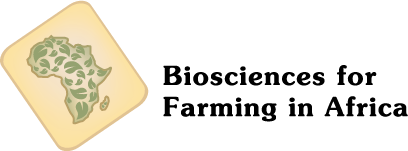We need your help
Biosciences for Farming in Africa (B4FA) was set up to help African farmers unlock the continent’s huge agricultural potential. Initially we provided training to African journalists so they could communicate balanced, scientifically based information on best practice, innovation and entrepreneurship to decision makers, scientists, educators and farmers, alike.
From this grew the B4FA Newswire, providing regular, accurate, unbiased and up-to-date information for those working to improve African agriculture and food security. You, our loyal and growing audience suggests there’s an appetite for what we do, but we cannot continue into 2020 without additional funding.
Can you help, or do you know of someone who might? We need to hear from you Click here to find out more and help
